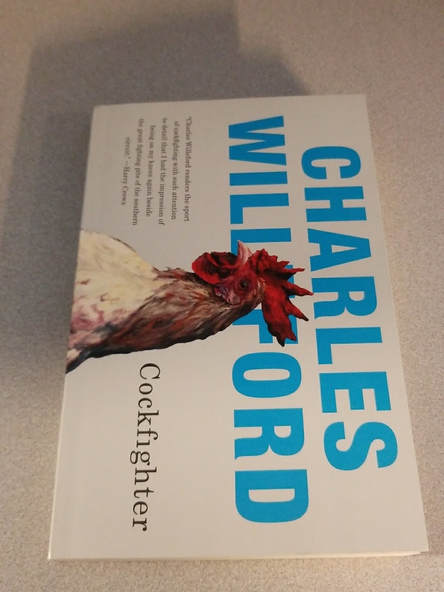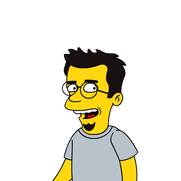I wrote Willeford off after that. That was a mistake.
A couple of weeks ago, during a visit to my favorite used bookstore, another customer asked the clerk if they had any Willeford. The clerk said they only rarely got any and the books didn't stay on the shelf long when they did. "People love their Willeford," he said. I interrupted, related my experience with Willeford and asked what these two guys would recommend. They shared a look and the clerk said, "Yeah, Pick-Up isn't good," to which the other customer agreed. They talked back and forth, then agreed Willeford's best work was Cockfighter.
Frank, you see, is a professional cockfighter (raising and fighting roosters, of course) with a dream: to be the very best cockfighter in the world - by the standards of his chosen crowd, of course. To do this, he wants to win the coveted Cockfighter of the Year medal, handed out at the whim of the owner of the Southern Cockfighting Tournament. As a sacrifice to his own hard work and sense of honor while he works towards accomplishing his dream, Frank has sworn not to speak a word until he earns that medal. At the start of the novel, he hasn't spoken in two years and seven months.
Essentially, Cockfighter is a southern-fried sports road-trip novel (loosely patterned after Homer's Odyssey, according to Willeford himself), jam-packed with a tremendous amount of technical information on the raising and care of gamecocks, the history and etiquette of the sport, and the brutality of the lives the men involved lead. They aren't necessarily bad people (some of them are), but the sense of simmering violence, unleashed through the birds they raise and train was actually kind of disturbing.
At the same time, the novel has a kind of rough beauty, giving the reader insight into a world and its denizens most of us probably will never be exposed to (thankfully; I have zero interest in seeing a real cock-fight. I agree with the SPCA on this one wholeheartedly), and the personal meaning behind what they do. Frank Mansfield, and maybe Willeford himself, identifies people by the they hold and their relationships to them over and over and over again. A truck-driver who hates it is is a whiny slob because he wants a desk-job, but Omar Baradinsky, Frank's friend who was once an extremely successful New York City advertising executive who retired at the top of his field, is a sort of awe-inspiring figure because he not only succeeded at his original chosen field, he made a decisive change when he realized he was unhappy. Frank's brother Randall trains as a lawyer, but never applies himself to the profession, sporadically supporting himself by writing, so he is a failure in Frank's eyes. Throughout all of these people and professions, Frank knows exactly who he is: a cockfighter. To Frank, knowing who you are is one of the most important things there is.
My major complaint with the novel is one of timing: originally published as a paperback original in 1962, much of the background information about characters harkens back to, for 1962, relatively recent times: World War II and the 1950s, and works just fine. However, the "definitive" edition of the novel, published in 1972 as a hardcover, was somewhat re-written by Willeford, but only sporadically takes into account the ten year time difference, leading to a few jarring instances that took me out of the story, such as the eight years Frank has been out of army, taking him back to the 50s, but the truck-driver having served in Vietnam.
Overall, it was a good novel. It's not a crime novel as I expected, not a sports novel (although that's vaguely close to a good description), only sort-of a road-trip novel, but I enjoyed it and it was definitely a nice change of pace.
Now, of course, I have to reconsider my opinion of Willeford and maybe try out some more of his work.
Any recommendations?


 RSS Feed
RSS Feed